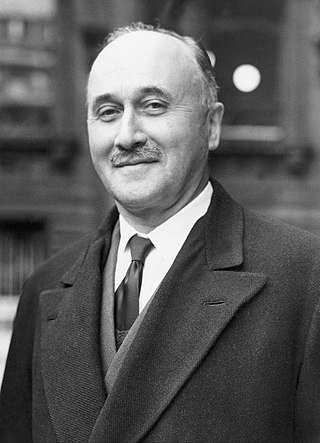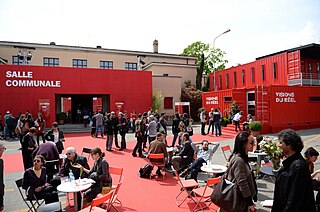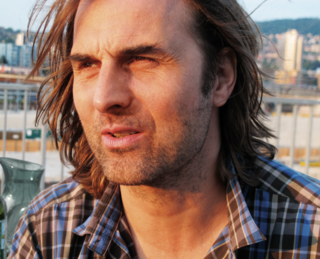Documentaries and fiction
1979-2005: Video portraits. Interviews with personalities from all horizons and from all tendencies: heads of state, astronauts, artists, inventors, etc.
1994: Jeanne Calment, the oldest person in the world
1995: In prison. Docu-fiction on preventive incarceration
1996-1997: Tomorrow perhaps, science-fiction series
1997: Les terriers de la mémoire, documentary on memory.
1998: With Maurice Béjart. Reportage in Italy, Switzerland and Russia.
2000 : The Sign of the Eleventh Hour. Full-length feature film. With Nanou Duggan, Roland Carey, Jean-Pierre Althaus and Annie Chaplin
2001: Three architects of Europe. Interview about the Euro with Jacques Delors, Valéry Giscard d'Estaing and Helmut Schmidt.
2002: Rêveur (Dreamer), a series focusing on the native country of immigrants. The series was granted the patronage of the Swiss Commission for UNESCO in 2004.
2005: Travels in the Orient by the Baron of Aubonne. Documentary on Jean-Baptiste Tavernier.
2007: 3D Odyssey, docu-fiction relating the history of stereoscopy.
2008: Morocco in 3D, documentary about Morocco
2009: Australia in 3D
2010: Iran 3D: Challenge of a civilization, a documentary about Iran today
2011: The Antikythera mechanism, the fingerprints of genius (in 3D)
2011: The film: "YES - In the Present - Live From Lyon"
2012: Music Making History, Montreux Jazz Festival with Claude Nobs
2014: The Enigma of the Mountain Gorillas
2015: D-Couverte Aventicum. In the capital of the Helvetii, jewels are unveiled after 2000 years. In coproduction with RTS
2015: Looking Towards Our Origins. The mission of the large ESO telescopes in Chile

Lausanne is the capital and largest city of the Swiss French speaking canton of Vaud. It is a hilly city situated on the shores of Lake Geneva, about halfway between the Jura Mountains and the Alps, and facing the French town of Évian-les-Bains across the lake. Lausanne is located 62 kilometres northeast of Geneva, the nearest major city.

The École polytechnique fédérale de Lausanne (EPFL), also known as the Swiss Federal Institute of Technology Lausanne, is a public research university in Lausanne, Switzerland. Specializing in natural sciences and engineering, it is one of the two Swiss Federal Institutes of Technology.

The University of Lausanne in Lausanne, Switzerland was founded in 1537 as a school of Protestant theology, before being made a university in 1890. The university is the second oldest in Switzerland, and one of the oldest universities in the world to be in continuous operation. As of fall 2017, about 15,000 students and 3,300 employees studied and worked at the university. Approximately 1,500 international students attend the university, which has a wide curriculum including exchange programs with other universities.

Jean Omer Marie Gabriel Monnet was a French civil servant, entrepreneur, diplomat, financier, administrator, and political visionary. An influential supporter of European unity, he is considered one of the founding fathers of the European Union.

Barbet Schroeder is an Iranian-born Swiss film director and producer who started his career in French cinema in the 1960s, working with directors such as Jean-Luc Godard and Jacques Rivette. Since the late 1980s, he has directed many big budget Hollywood films, often mixing melodrama with the thriller genre in films like Single White Female, Kiss of Death, and Murder by Numbers. He has been nominated for the Palme d'Or for his 1987 film Barfly, and an Academy Award for Best Director for his 1990 film Reversal of Fortune.

Visions du Réel is an internationally renowned documentary film festival held in April each year in Nyon, Switzerland. Established in 1969 as the Nyon International Documentary Film Festival, the event adopted its current name in 1995 and is the largest Swiss documentary festival.
The Lausanne Underground Film and Music Festival (LUFF) is a film festival and music festival devoted to underground film and music. It is held each year in Lausanne, Switzerland. The festival is organized by a non-profit organization. The organization's goals are to promote independent artistic projects and creations and to make those projects accessible to a large public. The primary goal of the Lausanne Underground Film & Music Festival is to present films and music that largely exist outside the mainstream and profit driven production and distribution circuits. The cinematic section presents mainly films with an experimental character and/or films that challenge the spectator's viewing habits. Films are screened during the day and evening, followed by live music events featuring underground artists at night. Money prizes are awarded by the festival for the films selected in the international competition, in order to support the filmmakers in creating their art. The musical program of the festival proposes sonar experimentations of all kind.

Jean-François Bergier was a Swiss historian. He was a professor at the University of Geneva from 1963 to 1969 and at the Swiss Federal Institute of Technology in Zurich until his retirement in 1999.

Sibylle Blanc is a French-speaking Swiss actress, writer and director who is actively involved in theatrical, film, television and radio productions in her native Switzerland as well as in nearby France.
Jean-Stéphane Bron (1969-) is a Swiss film director.

Docufiction is the cinematographic combination of documentary and fiction, this term often meaning narrative film. It is a film genre which attempts to capture reality such as it is and which simultaneously introduces unreal elements or fictional situations in narrative in order to strengthen the representation of reality using some kind of artistic expression.

The Jean Monnet Foundation for Europe is a public-utility and independent institution, created in 1978 by Jean Monnet and Henri Rieben, and dedicated to the conservation of Monnet's archives. Based in Lausanne since its creation, the foundation is located since 1981 at the Ferme de Dorigny, on the campus of the University of Lausanne. The foundation's activities range from the organization of events to the conservation and the enhancement of its collection of archives and documents.
Jean Mohr was a Swiss documentary photographer who had been active since 1949, primarily with some of the major humanitarian organizations of the world, including the United Nations High Commission for Refugees, the International Committee of the Red Cross (ICRC), United Nations Relief and Works Agency for Palestine Refugees in the Near East (UNRWA), the World Health Organization, and the International Labour Organization.

Freddy Buache was a Swiss journalist, cinema critic and film historian. He was the director of the Swiss Film Archive from 1951 to 1996. He was a privatdozent at the University of Lausanne.

The Lausanne campus or Dorigny university campus is a large area in Switzerland where the University of Lausanne (UNIL), the École polytechnique fédérale de Lausanne (EPFL) and several other institutions are located. It is in Dorigny, towards the west of Lausanne, on the shores of Lake Geneva. The site is about 2.2 kilometres wide and 31,000 people study and work there.

Marc-Henri Wajnberg is a Belgian film director born in 1953. He is also a screenwriter, an actor and the co-founder and CEO of Wajnbrosse Productions.

Fabrice Aragno is a Swiss director, producer, and cinematographer.

Thomas Imbach is an independent filmmaker based in Zürich, Switzerland. With his production company Bachim Films, Imbach produced his own work until 2007. He then founded Okofilm Productions together with director/producer Andrea Staka. All of his films have been released theatrically and Imbach has won numerous awards for his work, both in Switzerland and abroad. With Well Done (1994) and Ghetto (1997) Imbach established his trademark audio-visual style, which is based on a combination of cinema- verité camera-work and fast-paced editing. His fiction features Happiness is a Warm Gun, as well as Lenz (2006), I Was a Swiss Banker (2007) and the fictive autobiography Day is Done (2011) all premiered at the Berlinale. His latest feature film Mary Queen of Scots celebrated its premiere in Locarno and at the Toronto International Film Festival in 2013. His latest documentary Nemesis celebrated its international premiere at International Documentary Film Festival Amsterdam 2020, where it received the Prize for Best Cinematography. Thomas Imbach is currently considered one of the most unconventional and consistent Swiss filmmakers.

Martin Dahinden is a Swiss diplomat who has served as ambassador of Switzerland to the United States of America from 2014 to 2019. Dahinden presented his credentials to the President of the United States of America, Barack Obama, on November 18, 2014 at the White House in Washington, D.C. He retired in 2019.
Journeyman Pictures Ltd is a film distribution company based in England. The company works as an independent sales agent for producers of short current affairs, broadcast and feature-length films, both non-fiction and fiction.
















